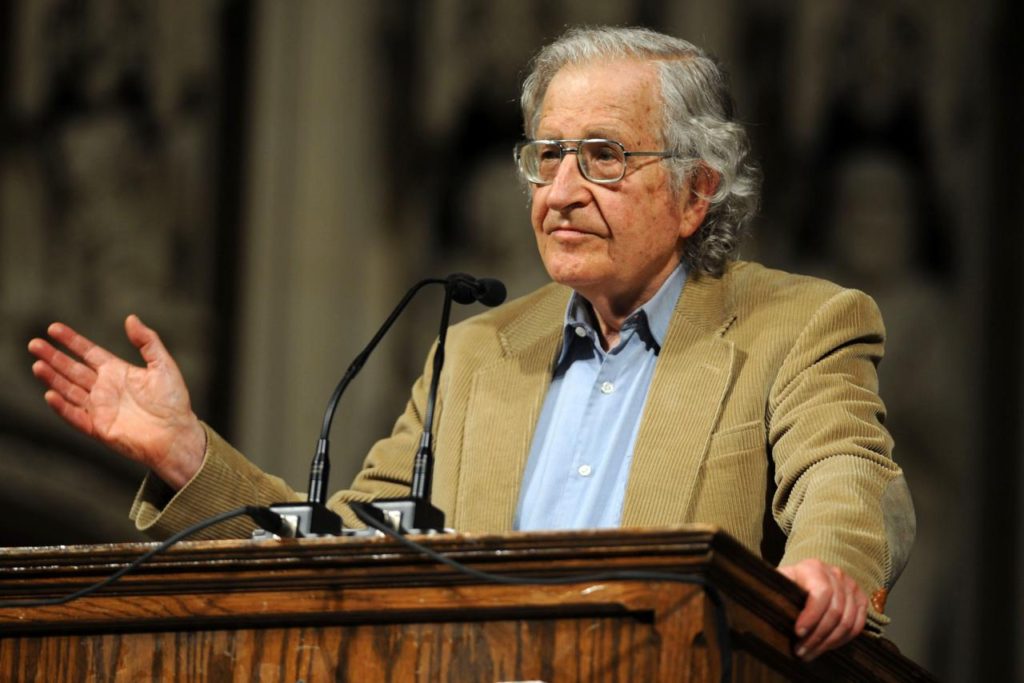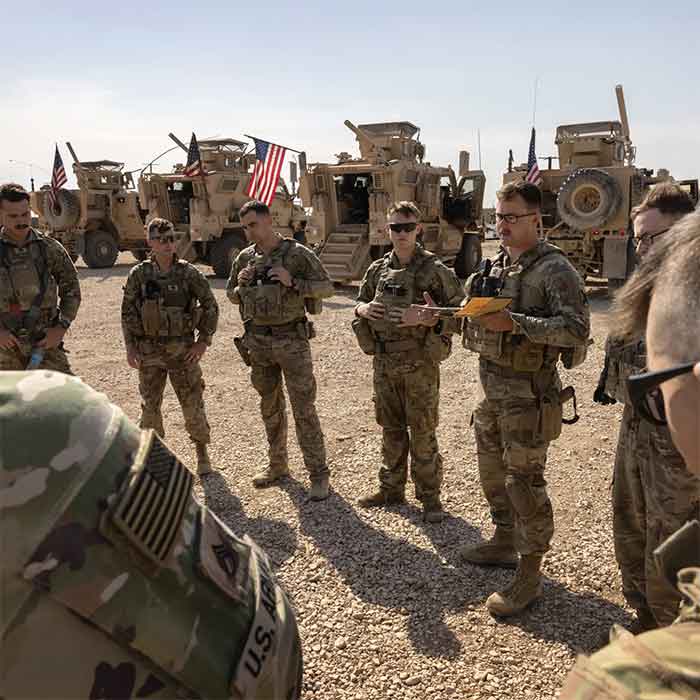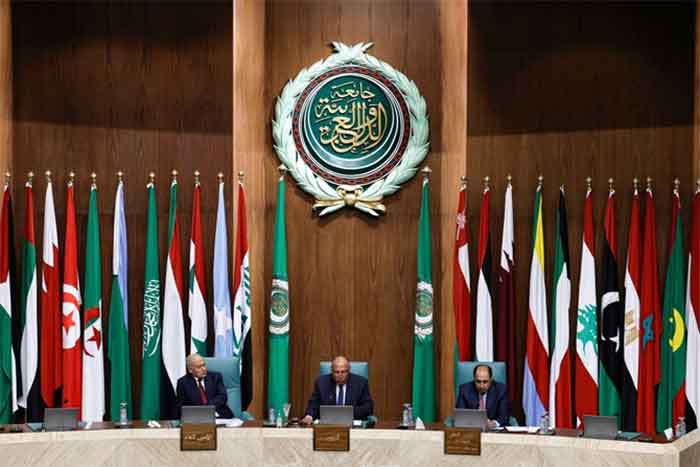by Noam Chomsky and Raghav Kaushik

This interview with world-renowned scholar and leading dissident Noam Chomsky has two goals. The primary goal is to understand America’s role in one of the bloodiest conflicts of the 21st century, the Syrian civil war. While there has been a lot of commentary on the Syrian civil war, there is confusion about the exact nature of the American involvement in it. First, while the facts suggest that America’s role in the Syrian civil war was relatively marginal compared to that of others like the Assad government and its backers, primarily Iran and Russia, this goes against a belief held by sections of the anti-war left that America’s role was prominent. Second, there was a sharp difference between American involvement in the Syrian civil war and American involvement in the Kurdish regions of north-east Syria. While the former was through a combination of inaction and a CIA-sponsored covert operation with no direct involvement of the military, the latter was based on policies that came out of the Pentagon and involved the US military directly, primarily to fight ISIS. In fact, there is reporting to suggest that the two operations, when they co-existed, caused some confusion on the ground as well. While the CIA was offering support to rebel groups fighting Assad, the Pentagon offered to support groups only on the condition that they would fight ISIS and not Assad. Third, even focusing specifically on the Syrian civil war, the topic of this interview, American policy changed with time, depending on the circumstances of the war. Hence, there was no single policy. As such, even though the American role in the Syrian civil war was relatively marginal as noted above, examining it is of some interest.
A second and more minor goal of this interview is as follows. There has been some controversy over Noam Chomsky’s views on Syria. Since Chomsky has not had much to say about Syria, the controversy is befuddling. It appears to be based on quoting bits and pieces of interviews out of context, rather than an examination of his core arguments. As such, this interview is an attempt to capture Chomsky’s core views of American involvement in the Syrian civil war. His views are necessarily brief owing to the relatively marginal nature of US involvement. Yet, this interviewer found them to be interesting and original. People who criticize his views can at least examine his views in their entirety and decide for themselves the exact nature of their disagreement. Those who read it with an open mind might even be surprised to discover areas of agreement.
A few notes about this interview. First, all serious commentators agree that the vast majority of the crimes in the civil war were committed by the Assad regime and its backers, principally Russia and Iran. This interview does not dwell on the above point. Second, the American role in Syria has been discussed at great length by journalist Shane Bauer in his in-depth report for the Mother Jones magazine. This interview is intended to complement Bauer’s reporting with additional analysis.
Q: Let us begin by discussing the initial US response to the Syrian uprising.
NC: In the early stages of the opposition to the savage Assad regime, the US stood aside. It had a very easy way to support the opposition, which didn’t carry the obvious risks of direct confrontation (namely, bringing the Russians in and escalating the atrocities). The easy way was to encourage Israel to mobilize its forces along the northern border, a move that would not produce any objections from the international community and which would compel the regime to withdraw its forces from a number of frontline positions and relieve the pressure on the opposition. It was not done, apparently never considered.
It’s reported that at the same time that the US was strongly supporting Assad in this way, a small CIA operation was supporting the opposition. If so, the most likely conjecture is that the US (and obviously Israel) wanted to be sure that Assad would be weakened, even if victorious.
Q: Commenting on the US policy on Syria, Gilbert Achcar states that: “Now, what has been the most important intervention of the Obama administration in Syria? To answer this question, let us compare its attitude toward the Syrian opposition to the way the United States dealt with the mujahideen who fought the Soviet occupation in Afghanistan. Washington supported the Afghan mujahideen, along with the Saudi kingdom and the Pakistani military. It is well known that it armed them with anti-aircraft missiles, Stinger missiles. Compare that to Syria. Not only did the United States not deliver any such weapons to the Syrian uprising—even in 2012, when it was still dominated by what could be described as a democratic opposition. But it even forbade all its regional allies from delivering such weapons to the Syrian insurgents. Turkey produces Stinger missiles under U.S. license, but it wasn’t allowed to deliver a single one of them to the Syrian opposition—nor were the Gulf monarchies. That was the crucial intervention of the United States in the Syrian conflict. And that is what allowed Bashar al-Assad’s regime to remain in place. It allowed him to maintain a monopoly of air power, which enabled his regime to even drop barrel-bombs from helicopters—a most indiscriminate and devastating type of bombing.” Do you agree with Achcar’s assessment?
NC: I think Achcar is making a fair point here. It would be interesting to look into why the US took this position. But I think the Obama administration reservations on supplying Stinger missiles to the opposition are part of a more general concern. These missiles are easily transportable, and if they fall into the wrong hands, could become a major threat to commercial aircraft. In contrast, drawing Assad’s troops to the southern border posed no threat. Failure to do that is the decisive evidence that the US-Israel were not opposed to Assad’s remaining in power.
Q: Now let’s discuss the post-2013 American policy, specifically the CIA program to arm the rebels. It is clear from all reporting, e.g., Shane Bauer’s, that the CIA program was (a) big – a billion dollar program, one of CIA’s biggest covert operations, (b) lethal – it supplied TOW (tube-launched, optically tracked, wireless-guided) anti-tank missiles to the opposition, and (c) anti-Assad in its goals.
NC: It’s pretty clear that a few years later, Obama had joined the main European allies in thinking that Assad might be removed. It is clear that the CIA was by then sending advanced anti-tank weapons that blocked the offensive actions of Assad’s army, dismissing the warnings by correspondents on the ground (and anyone who bothered thinking) that this might incite direct Russian intervention, destroying the weapons and sharply escalating the atrocities. As happened. At this point Obama backed off, not wanting to move on to likely nuclear war.
Q: Interestingly, Bauer’s piece indicates that what you described was not just the position of journalists on the ground, but also understood by the White House itself. Bauer interviewed Philip Gordon, the White House coordinator for the Middle East from 2013 to 2015. This is what Gordon stated referring to the Russian intervention: “It was the logical continuation of what we had already seen, which is that the more that we intervene, the more they intervene,”
NC: Very interesting comment by Gordon.
Q: What according to you was the motivation for the CIA program? As you’ve stated in the past and confirmed by your answers above, the US “may not like the (Assad) regime, but it is nevertheless a regime that is well practiced in accommodating their demands and any unknown alternative might prove worse in this respect.”
Bauer offers an explanation for why Obama launched the CIA program in the summer of 2013. “The decision in the summer of 2013 to directly arm the rebels may have had just as much to do with an escalating proxy war against Iran as it did with Assad’s use of chemical weapons. For more than a year, the Free Syrian Army had controlled al-Qusayr, a strategically important town near the Lebanese border and the highway between Damascus and the port of Tartus. In May 2013, al-Qusayr came under an assault led not by the Syrian army, but by Hezbollah, the Lebanese militia with decades of experience in guerrilla warfare. In less than three weeks, al-Qusayr fell to the regime. It was Hezbollah’s first major offensive in Syria, and many Syrians felt betrayed to see an organization they had revered for its opposition to Israel now acting as an occupier. Thousands of Hezbollah fighters were said to have entered the country to help the regime retake Aleppo and other opposition strongholds. In Washington, Hezbollah’s involvement was seen as evidence of Iran putting its finger on the scale……In June 2013, one month after Hezbollah’s attack began, the White House publicized the intelligence community’s findings on chemical weapons and Obama decided to arm the rebels.”
NC: The facts are correct. The speculation is conceivable, though I know of no evidence for it. A simpler explanation seems to me to be that the US-Israel wanted to keep Assad weak, even if remaining in power. But I don’t see much point in debating a policy decision about which we have no evidence.
Q: Many activists argue that the opposition was forced to bear arms due to Assad’s brutality and had to get arms from wherever they could get them to defend themselves.
NC: One can debate whether the CIA should or should not have sent weapons. I took no stand on it, so I’m not relevant to this debate.
Q: The topic of the American role in Syria divided the US left, roughly between those who exclusively focused on the CIA program and its impact, and those who exclusively focused on the pro-Assad nature of US policy in the early days of the uprising. Do you have any thoughts on these disagreements?
NC: I honestly don’t see the disagreement. Few to my knowledge – I can’t think of one – have discussed the pro-Assad component of US-Israeli policy, namely refusing to draw his forces to the South to relieve the opposition. After that, US policy vacillated depending on circumstances.
The only disagreement I see is whether we have to rigidly impose a pro-/anti-Assad position to Obama or whether we can consider how policy was adjusted to circumstances and – crucially — over whether we should have concern for the fate of Syrians, as Cockburn and Glass had when they warned about the consequences of sending heavy arms to the opposition – correctly as it turned out.
Q: Another point of controversy – this one concerns your views, but does not pertain to the core of your arguments which are captured above, but the way in which you present them – appears to be your emphasis of the legality of what Iran and Russia did. What you say is correct – Iranian and Russian interventions were not acts of aggression – but it doesn’t seem significant. Many activists, myself included, do wonder why you bring it up. The core of your argument is unaffected by the legality of what Iran/Russia did. If anything, as a lot of the reaction indicates, it is clearly distracting people from the core issues.
NC: As far as I recall, I once responded to the claim that the Russian-Iranian intervention was illegal by pointing out that it is not. That sentence is my total emphasis on the legality of what they did. The rest is bitter condemnation of their primary role in the horrendous atrocities.
In response to tantrums about this correct statement, I have occasionally reiterated it.
Raghav Kaushik is an activist based in Seattle. Some of his recent engagements have been with the Kshama Sawant Solidarity Campaign, the fight against intellectual property protections applied to covid vaccines, and the fight against the authoritarian Modi regime in India.














































